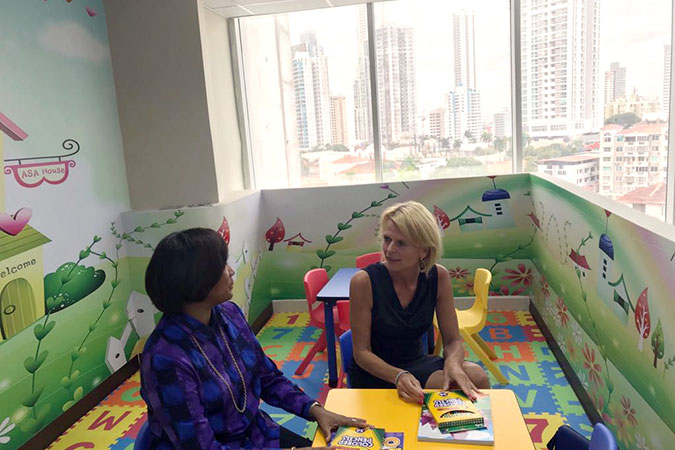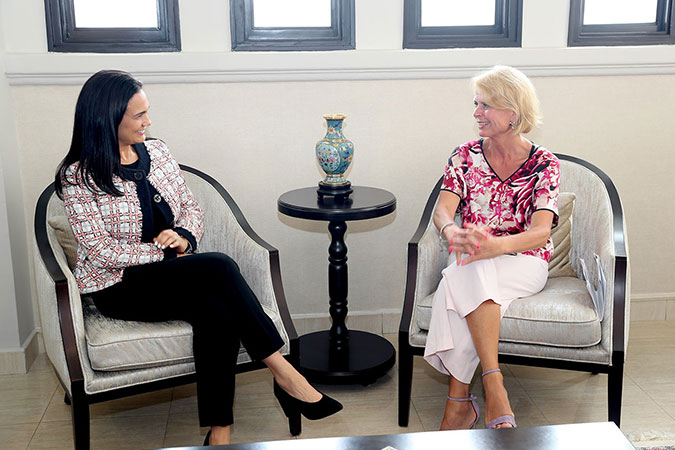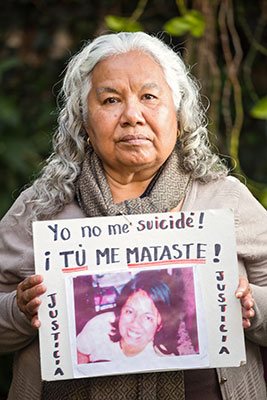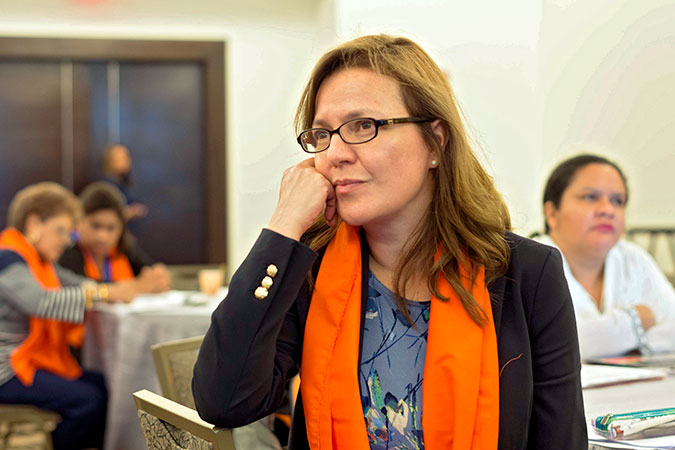Coverage: UN Women Deputy Executive Director in Panama
Date:

UN Women Deputy Executive Director Asa Regnér wrapped up a two-day trip to Panama, visiting a Government-sponsored safe space for survivors of gender-base violence.
It took Irinea Buendía six years to get justice for her daughter’s murder, but her pursuit of justice led to a historic precedent in prosecuting femicide in Mexico. Read more►
Adriana Quiñones, UN Women´s Country Representative in Guatemala talks about regional initiatives to prevent femicide. Read more►
These spaces provide advice, legal and psychological counseling, shelter and short-term accommodation to women and their children, as part of a nation-wide effort led by the Panamanian National Women’s Institute (INAMU), an important partner of UN Women in advocacy and intergovernmental processes in the region. During the visit, Ms. Regnér was accompanied by the Director-General of INAMU, Liriola Leotau.
Ms. Regnér underscored the importance of ensuring safety to women survivors of gender-based violence, as well as access to integrated and high-quality essential services (health, police, justice and social services). She noted that this is a key obligation of States, as reflected in several international instruments, including the Agreed Conclusions of the 57th session of the Commission on the Status of Women (CSW 57).
Within the first month of opening of this office, it assisted 250 survivors of violence, according to Director-General Leotau. In addition to its location in Panama City, 14 centres of INAMU operate at the provincial level since 2016. INAMU has been strengthening cooperation with other areas of the Government to address violence against women, which remains an issue of concern in Panama. Eight femicides—gender-related killings of women—have been registered so far in 2018 in the country, according to figures provided by the Attorney General’s Office.
In 2017, the President of Panama passed a regulation to implement the law against femicide, which amended the Criminal Code and introduced the crime of femicide, establishing sanctions for perpetrators and improved assistance for women who are victims of gender-based violence. Among the 25 countries with the highest rates of femicide in the world, 14 are from Latin America and the Caribbean. In 2014, UN Women and the Office of the High Commissioner of Human Rights launched the Latin American Model Protocol for the investigation of gender-related killings of women. The Model Protocol is a tool for the police, courts, officials in the justice systems and forensic doctors to properly investigate femicide. Panama is among the 16 countries in the region who now have specialized legislation on femicide/feminicide.

On Monday, Ms. Regnér was welcomed by Isabel Saint Malo Alvarado, Vice-President and Minister of Foreign Affairs of Panama. During their meeting, Ms. Regnér applauded the Vice-President’s regional leadership as the global champion of the Equal Pay International Coalition (EPIC), an initiative led by UN-Women, ILO and OECD.

